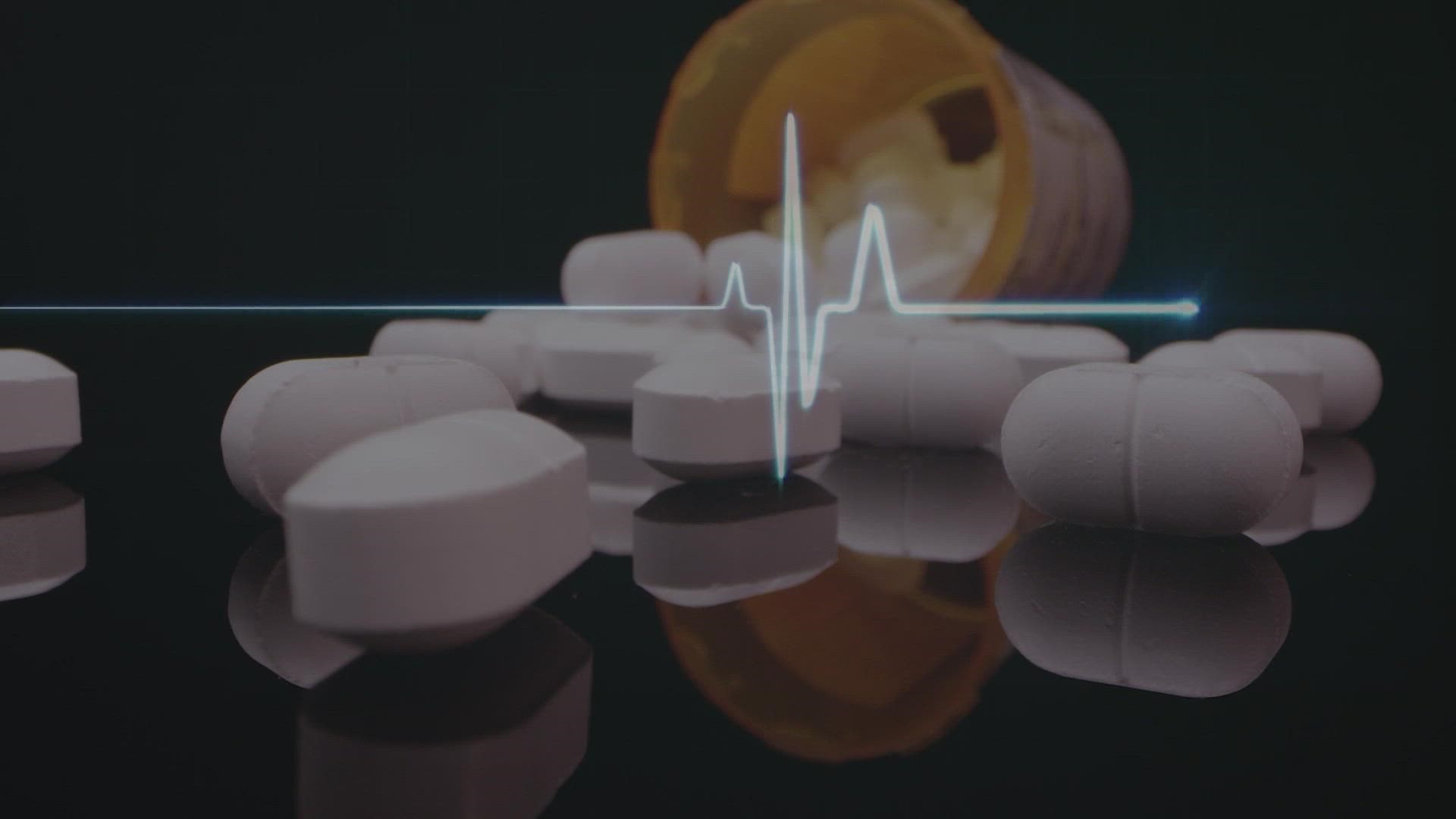HOUSTON — The opioid crisis in the United States is being driven by fentanyl, a powerful synthetic drug often used by drug dealers to lace other drugs. People often don’t even know they’re using it.
This week, officials in Montgomery County announced they’ve seen a 271% jump in fentanyl deaths since 2019.
In Houston, someone is killed by fentanyl every 32 hours, according to UTHealth Houston. However, there is hope and free help for those who are struggling.
UTHealth’s Houston Emergency Opioid Engagement System, or HEROES program, provides free counseling, medical treatment, and long-term care for those struggling with addiction. Dr. James Langabeer leads the program.
“Unfortunately, we have 13-year-olds and 14-year-olds, we also have 80-year-olds,” Langabeer said while explaining how addiction can affect anyone.
Crystal Walsh knows that all too well and is one of the lucky ones, surviving several drug overdoses. She became dependent on opioids following an injury several years ago.
It wasn’t until 2020, she said, that the pills she was buying from the streets became more dangerous and were laced with fentanyl.
“It’s not just pills they are putting it in,” Walsh said. “They’re putting it in marijuana. They are putting it in stimulants. They are putting it in everything. It’s literally Russian roulette.”
Langabeer is seeing that, too.
“It just gets worse and worse,” Langabeer said. “The illegal drugs coming into our market have higher concentrations of synthetics. Unfortunately, the consequences are a lot of deaths.”
RELATED: 'He overdosed' | Mothers come together in The Woodlands to talk about an increasing problem
UTHealth’s HEROES program is a partnership with several departments, like Houston Fire and EMS. Those struggling with drug dependence, or their loved ones, can call the program for help. HEROES even goes door to door, following up on 911 calls after someone survives an overdose, to offer help and the life-saving drug Narcan for free.
Narcan counteracts the effects that opioids have on the brain during an overdose. Narcan is available without a prescription over the counter but can be hard to find and expensive. Langabeer said the average price runs about $165 per dose.
“It may be commercially available, theoretically, but in practice, it’s not there,” Langabeer said. “We need it in grocery stores. We need Narcan in libraries. We need it on street corners.”
“Narcan is how I survived,” Walsh said.
The HEREOS program has been a saving grace for Walsh. She’s been in recovery for 18 months.
“I am happy and joyous ... I am free. I can wake up and I can be a sober mom to my children a sober wife to my wife,” Walsh said.
If you or a loved one are struggling with addiction, both Walsh and Langabeer want you to know that there is help and hope.
“When you’re connected to a program that really is helping with peers and champions, people who work with you, know what you’ve been through, you are on medication and you are getting the right behavioral counseling… you have a 100% chance of recovering from this disease,” Langabeer said.
“There is a life after,” Walsh said. “We do recover.”
For more information about the HEROES program, call 713-500-3597 or click here.

